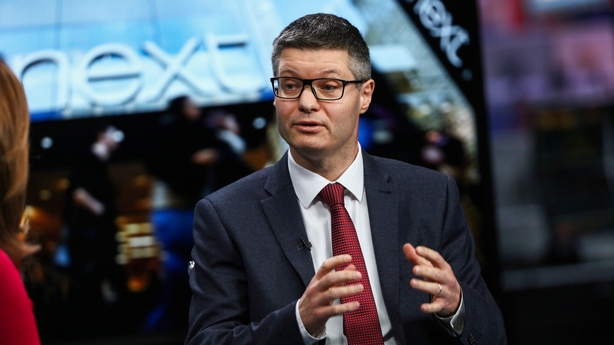Clothing retailer Next said today it was on track to make an annual profit of almost £1 billion as it raised its forecast for the second time in two months after better than expected recent trading.
Its shares jumped almost 7% in London trade today.
With more than 800 stores in the UK and Ireland and nearly eight million online customers, Next is often considered a useful gauge of how consumers are faring.
It also has nearly two million overseas customers buying through its website and many more who buy its products via third party websites, or so-called aggregators.
The group reported a 7.1% rise in pretax profit for January-July on a 4.4% increase in full-price sales and said full-price sales in the first six weeks of its fiscal second half had "materially exceeded" its expectations and were up 6.9%.
As a result, Next upgraded its forecast for second-half sales growth to 3.7% from previous guidance for a 2.5% rise.
It also now expects full-year profit before tax of £995m, ahead of previous guidance of £980m and an 8.4% increase on 2023/24.
Next navigated a difficult half for the clothing sector, with an unseasonably cold spring and a cool and wet early summer, while the cost of living crisis has continued to weigh on spending on non-essential items.
The group particularly benefited from a step-up in overseas online sales.
Rivals Primark/Penneys, John Lewis, Zara owner Inditex and H&M have all highlighted the impact of unseasonal weather on sales.
Next said average selling prices this year, on comparable items, were "slightly down" on last year.
Shares in the company, considered by analysts to be one of the best run retailers, have risen by nearly a half over the last year, hitting a record high this week.
Consumer outlook still positive, says Next boss
The outlook for the UK consumer remained positive, the boss of clothing retailer Next has said, noting there was nothing in its current numbers that suggested a fundamental malaise.
In March, Simon Wolfson, Britain's longest-serving FTSE 100 CEO, said the UK consumer outlook was the best it had been than since before the pandemic in 2020.

However, a difficult half for the UK clothing industry followed, with an unseasonably cold spring and a cool and wet early summer weighing on sales.
Demand since July has picked up, with Next reporting sales in the first six weeks of its fiscal second half that "materially exceeded" its expectations.
"I don't think things were as bad as they appeared to be in the summer," Wolfson told Reuters in an interview.
"Our view is that sales are going to become more and more volatile as customers leave more and more of their purchasing decisions until the point at which they actually need goods," he said after Next reported half year results.
Wolfson said 'big ticket' discretionary home furnishing items remained a difficult market. "But we think that is more to do with the stagnant housing market than it is to do with the price of the goods."
The CEO also highlighted the state of Next's finance business as a good indicator of the health of the UK consumer.
"People are paying down their balances a little bit faster than they were this time last year, which is a positive sign for the consumer and default rates are the lowest level they've ever been for us," he said.
"There is nothing we can see in our numbers that suggest any sort of fundamental malaise," he stated.
Wolfson said one potential cloud on the horizon that could hold back the consumer economy was a weaker job market, though he was encouraged that it had not shrunk yet.

